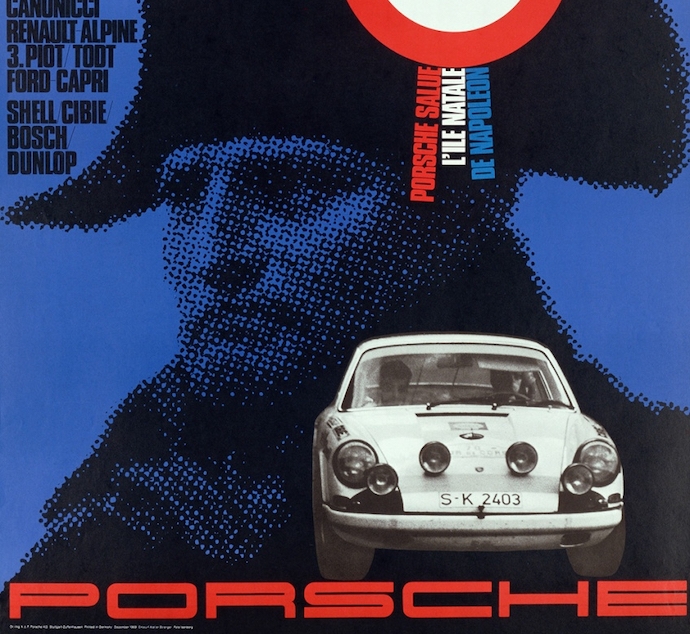
Business
Did Porsche Mislead Markets over Volkswagen Takeover?
Ahead of a court hearing in Celle, Germany next week, private investigators have uncovered damning new evidence about Porsche’s attempts to conceal efforts to acquire Volkswagen in 2008. Despite repeated denials by Porsche at the time, the revelations laid out in the latest twist in the 14-year saga suggest that Porsche had in fact been plotting the takeover as early as 2005, more than three years before they informed the market of their true plans.
Markets were stunned in October 2008, just as the global financial crisis was sending shockwaves through the world economy, when Porsche issued a regulatory filing stating that it had amassed a 74.1% stake in Volkswagen, via a combination of straight equity purchases and an even bigger holding of cash-settled options on the stock. With the State of Lower Saxony owning 20% of Volkswagen, and index funds holding a further 5%, Porsche’s mammoth acquisition meant that there was only 1% of free float in the market. At the same time, over 12% of Volkswagen shares had been shorted by hedge funds and other traders bearish of the company’s prospects, and as a result, the imbalance saw the “mother of all short squeezes” occur, with Volkswagen stock soaring to briefly value the firm as the world’s most valuable company, stealing the crown from Exxon, leading short sellers into some of the heaviest losses in history.
Those short of Volkswagen stock suffered massive losses in the melee that followed Porsche’s disclosure, with estimates of as much as $40 billion being wiped from the balance sheets of those caught on the wrong side of the trade. Lawsuits duly followed, with Porsche management accused of market manipulation and profiteering from the spike in the Volkswagen share price, with claimants stating there would never have been short of the stock had Porsche informed the market that it was building a huge stake via equity and options purchases and planned to launch a full takeover of the company.

The evidence gathered by corporate intelligence firm Black Cube stands in stark contrast to the claims made at the time of the short squeeze and in subsequent trials. Much was made during the hearings of Porsche’s repeated contemporaneous denials that they had any intention to launch a takeover of Volkswagen, statements which had encouraged short sellers to bet against the price of Volkswagen stock. Porsche vehemently denied misleading the market, stating they had only decided on the takeover action shortly before the October 2008 announcement. The new evidence uncovered by Black Cube appears to undermine the denials, with legally obtained recordings from some of the key figures in the takeover project revealing a plot that was years in the making.
Christian Dau, who worked in Porsche’s PR team as an assistant to the head of public relations, admitted to agents of Black Cube that “we started the takeover of [Volkswagen]…in 2005…I think it was in June 2005, [Wendelin] Wiedeking [Porsche’s former CEO] called me and said ‘You have to hear, we have a project, we want to start buying shares of [Volkswagen], and the target is more than 20%’…We bought options very early on shares of [Volkswagen] to a very interesting price…at that moment, the price for the options increased, and we could buy options and shares step by step, in this way.”
His claim was corroborated by Gregor Alpers, an M&A vice president at Merrill Lynch, who was Porsche’s adviser at the time and first presented the idea for a Volkswagen takeover plan in June 2005. Alpers told Black Cube investigators that “the goal was…set from day one,” and that he and his colleagues set to work structuring a financial package that would see Merrill Lynch support Porsche in its quest. Porsche saw the takeover as a means to gain access to Volkswagen’s large cash reserves, which it planned to use to pay off its own debt pile.
Merrill Lynch syndicated a $35 billion loan for Porsche, taking the lead role in a consortium which included Barclays and Commerzbank, and devised a strategy for Porsche to amass a huge stake in Volkswagen under the radar. Instead of acquiring Volkswagen stock directly, which would require mandatory reporting, Merrill Lynch suggested instead the purchasing of cash-settled options on Volkswagen shares, with the aim of circumventing the need for public disclosure, whilst achieving Porsche’s true aim of assuming control of its target company.
Merrill Lynch could not execute the options strategy on Porsche’s behalf, since by virtue of advising Porsche on its takeover plans, it would be a conflict of interest to then trade on the basis of the inside information it held. Instead, a little-known Canadian bank, Maple Financial, was drafted in to execute the trading. Operating beyond the reach of both the German and American regulators, Maple was able to quietly carry out the mission and was so successful that it saw Porsche earn more in trading profits during one financial year than it made from sales of its vehicles that year.

James Leach, Maple’s Chief Operating Officer at the time, told Black Cube that Wendelin Wiedeking had approached the bank by telling a Maple executive over dinner “I’d like to purchase [Volkswagen]. Can you help me?” Leach told investigators “We got paid a lot of money for that, as you can imagine. And the idea was if [the Volkswagen takeover] was successful, we were gonna become Porsche Bank.”
By the time Porsche made their surprising regulatory announcement in 2008, Merrill Lynch had been taken over by Bank of America, with the newly merged entity now reluctant to keep financing Porsche’s project. With contagion from the deepening global financial crisis spreading through markets, Porsche was told that the takeover attempt was too financially risky, and Porsche was considered by many observers to be teetering on the brink of bankruptcy itself.
Walter Kraushaar, former managing director of Maple Bank, told Black Cube agents that Ferdinand Piëch, chairman of Volkswagen’s supervisory board, was behind the bank’s abrupt termination of Porsche’s credit facility, after hearing rumours of Porsche’s plans: “When the rollover dates on the [loan] came, then Piech convinced some of his old buddies…who are [on the] advisory board of big banks, to convince the big banks not to refinance the loans…he dried them out from the backside.”
With no credit line available to complete their takeover plans, Porsche executives knew that the bid was unrealistic, yet still announced to the market that they were planning to buy all the remaining shares and assume full control. Following Porsche’s surprise declaration of its 74.1% stake in Volkswagen, the share price quadrupled in value, and – in a move framed as assisting with unwinding the short squeeze imbroglio – Porsche duly sold a 5% stake in Volkswagen back into the market, earning huge profits and helping ease their own bankruptcy concerns as a result.
Black Cube’s findings appear to bolster the claims of Porsche’s critics, including Elliott Associates who previously filed claims alongside other investment firms seeking $1.8 billion in damages from Porsche for losses suffered at the time of the short squeeze. The revelations could see Porsche executives held to account for their actions in the run-up to the aborted takeover, in both civil and criminal proceedings. Monday’s court case in Celle is billed as an “investor test case,” with both Porsche and Volkswagen named as defendants. The case is brought under the KapMuG Act of 2005, a reform brought in by German legislators to provide a means for collective redress for investors who claim losses as a result of faulty capital markets information.

